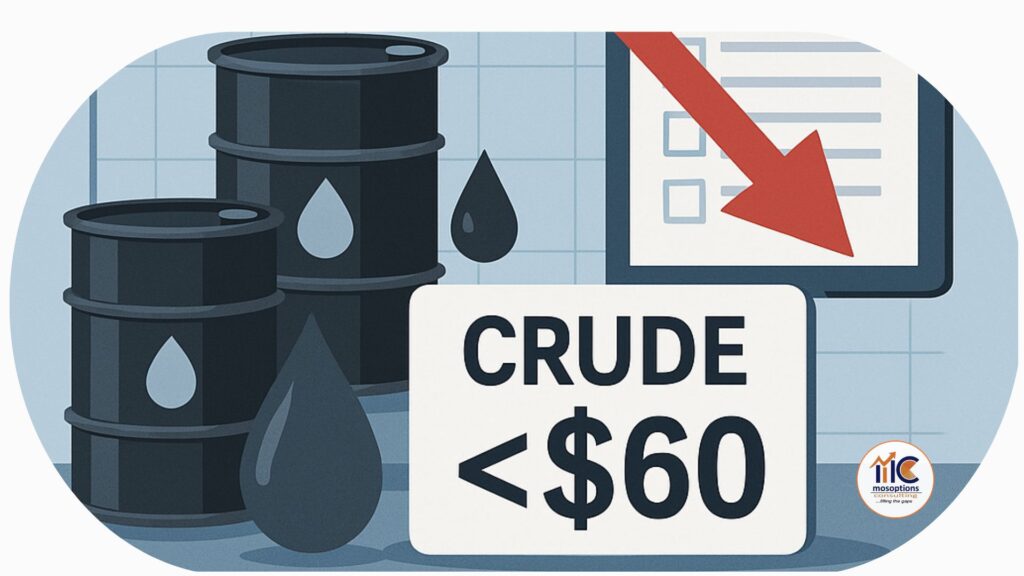When Oil Underperforms
What Sub-$60 Crude Means for Nigeria’s Budget
Nigeria has long hinged its economic stability on a single lifeline, crude oil exports. In the 2025 national budget, the government projected its revenue based on a $75 per barrel benchmark. That figure was meant to reflect a cautious optimism, given historical oil price fluctuations.
However, as of recent reports, Brent and WTI crude are both trading below $60 per barrel, a full 20%+ drop below the benchmark. What does this mean for the Nigerian economy, and by extension, the lives of everyday Nigerians?
Revenue Shortfall: Less Oil Money, Less to Spend
The benchmark price is used to estimate how much oil revenue will flow into the government’s coffers. If the actual price falls short, so does the projected revenue.
With oil contributing over 70% of Nigeria’s export earnings and a significant portion of government revenue, a sustained dip below the benchmark will likely cause:
- Delays in salary payments (especially in oil-dependent states)
- Cuts in capital expenditure
- Reduction in federally allocated funds to states
Increased Deficit and Borrowing Pressure
To keep the country running, the government may resort to borrowing, both domestically and externally. This can:
- Drive up national debt
- Increase debt servicing costs
- Crowd out private investment (as government borrows more from local banks)
Currency Pressure and Inflation
Lower oil earnings typically mean fewer dollars flowing into Nigeria’s reserves, which can:
- Put pressure on the naira
- Lead to FX scarcity
- Increase import costs, driving up inflation
The knock-on effect? Everyday Nigerians may see higher prices for fuel, food, and essentials.
Impact on Infrastructure and Social Services
With less revenue, planned infrastructure projects may be suspended or slowed. This affects roads, power, education, and healthcare. It also means fewer job opportunities in public works and slower private sector growth.
So, What Can Be Done?
While this isn’t Nigeria’s first oil shock, the recurring nature of this vulnerability highlights a critical issue: overdependence on oil.
Policy-wise, the government may need to:
- Reprioritize spending with a focus on essentials
- Expand non-oil revenue (e.g. taxes, digital economy, agriculture)
- Improve transparency and efficiency in existing expenditure
How Businesses Should Prepare
A. Financial Contingency Planning
- Re-forecast 2025 budgets assuming lower demand, higher costs.
- Diversify revenue streams (e.g., export opportunities in non-oil sectors).
B. Tax & Compliance Strategies
- Review all deductions & allowances (avoid FIRS disputes).
- Explore tax incentives (e.g., Pioneer Status in non-oil sectors).
The Bigger Picture
At Mosoptions, we believe economic shifts like this are not just headlines, they’re warning signs and planning triggers.
Whether you’re a business owner, policymaker, or professional, now is the time to ask:
“Are we financially structured to navigate external shocks?”
Let’s help you break down the numbers and plan ahead.
What are your thoughts on Nigeria’s reliance on oil? How can we build better economic resilience?
#NigeriaEconomy #PublicFinance #OilPrices #EconomicPlanning #FillingTheGaps #FiscalDiscipline

